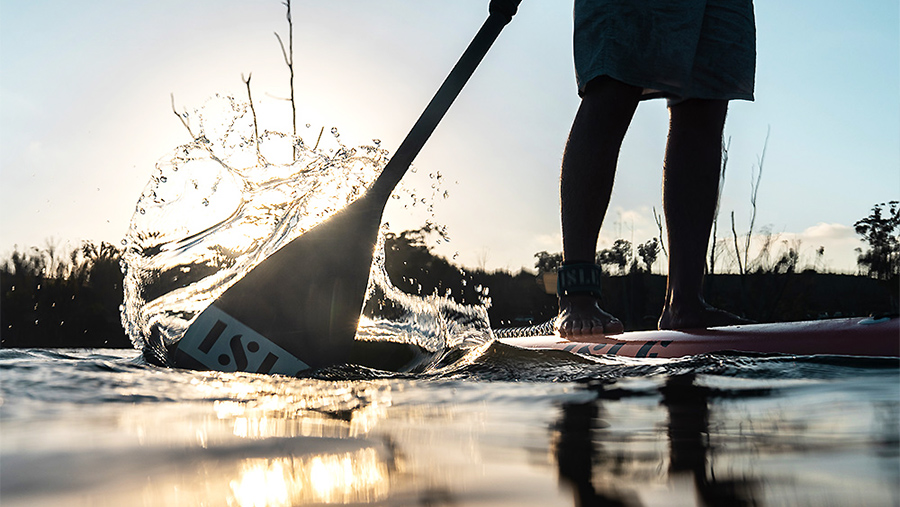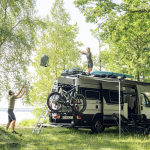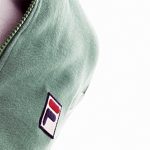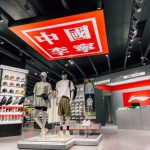Solo Brands, Inc. reported that first-quarter sales climbed 19 percent despite macroeconomic headwinds with gross margins in line with expectations. John Merris, CEO, told analysts strong innovation will be critical to riding out the current inflationary and overall unstable environment.
“The volatility we experienced in the first quarter has continued into the second,” said Merris. “We believe it is a combination of lapping strong comparisons from a year ago related to stimulus, as well as few consumers continuing to feel the pressures of higher inflation, which is impacting their spending. We are focused on what we can control which is delighting our customers, delivering amazing products, and building a world-class team. We are continuing to listen to our customers and invest in innovation to bring them more products that allow them to share lasting memories, and, in turn, continue to refer us to their friends and neighbors.”
Solo Brands’ businesses include Solo Stove firepits, stoves and accessories; Chubbies casual apparel and activewear; Oru Kayak, origami folding kayaks; and Isle inflatable paddleboards.
Sales Expand 19 Percent
In the quarter, sales climbed 19.0 percent to $82.2 million, in line with guidance. Growth was driven by a 34.6 percent increase in total orders and a 13.3 percent increase in average order value, driven by the acquisitions of Chubbies, Oru and Isle over the past year. The latest quarter had significantly less deferred revenue, caused by supply chain disruptions, compared to the year-ago quarter.
By channel, direct-to-consumer (DTC) sales decreased 3.4 percent to $60.2 million, reflecting the impact of deferred revenue. Wholesale sales surged 224.2 percent to $22 million.
The net loss in the period was $3.2 million, down from earnings of $25.5 million a year ago. On an adjusted basis excluding items related to its acquisitions as well as its October 2021 initial public offering, net income fell 58.7 percent to $11.1 million, or 19 cents a share, from $26.8 million a year ago.
Merris said the DTC sales decline reflected difficult year-ago comparisons while the wholesale strength reflected increased store growth and strong sell-through across retail. He said, “Despite this channel shift, we were able to achieve gross margins in line with our expectations.”
Gross margins improved to 69.4 percent from 67.3 percent in the prior year. Adjusting for the impact of purchase accounting adjustments related to the fair value of inventory for transactions, the adjusted gross margin eroded to 56.9 percent from 68.2 percent, primarily driven by higher inbound freight and logistics expenses and also by the integration of its acquisitions.
SG&A expenses for the first quarter jumped 144 percent to $45.6 million, primarily due to higher expenses from the acquisitions. The increase also was due to increased equity-based compensation, headcount, and advertising spend. As a percent of sales, SG&A expenses grew to 55.5 from 27.1 percent.
On an adjusted basis, EBITDA fell 48.9 percent to $14 million, of 17.0 percent of sales, from $28.6 million, or 41.4 percent, a year ago. Solo Brands noted that since Q1 is the company’s smallest quarter, strategic investments have an outsized impact on adjusted EBITDA margins in the period.
Five Growth Priorities
“We continue to see a tremendous opportunity to leverage the power of our platform and as noted last quarter invest behind our growth,” said Merris. “We believe these investments will begin to pay off in the back half of this year and over the long-term.”
Merris noted that indicators of brand health remained strong with net promoter scores in the high 70s, referral rates about 40 percent and repeat purchase rates about 50 percent. Additionally, Solo Brands’ platform has a growing customer base of 3 million with the total number of customers who have purchased from at least two brands rising from 25,000 to 43,677, up 70 percent since the end of the year.
“We remain focused on what we believe is the greatest opportunity for solo brands, which is the organic one with our core products here in the U.S.,” said Merris. “There is tremendous room to significantly grow our total customers and increase our current estimated market penetration of less than 2 percent for Solo Stove. Chubbies, Oru and ISLE have similar opportunities.”
Discussion growth strategies, Merris said a primary focus remains on driving innovation.
At Solo Stove, its range of Heat Deflectors was rolled out in the first quarter and over 26,000 units were sold, well ahead of expectations.
“We are enthusiastic about the strong early response and heat deflectors are becoming a meaningful add-on purchase that will be especially attractive as we move into the key winter selling season,” said Merris. Solo Stove’s Pi Pizza Oven was also well received by its customer base and new colorways introduce late last year are receiving growing interest. The corporate business is small but “growing at a very fast clip” with the brand currently etching on stainless steel and introducing personalization on colorways.
Said Merris, “We are starting to realize the benefits of the investments we have made in product innovation at Solo Stove and we have a healthy pipeline of new products introduced in the back half of the year.”
Chubbies recently introduced a new silhouette fabrication in a performance-wear T-shirt. Said Merris, “While it’s still early, the initial response has been good, and we plan to offer more innovation in the back half of 2022 with the introduction of a category expanding product.”
At Oru Kayak, the response to Oru Lake Kayak, its introductory price point kayak, has been “very strong,” while Isle has major launch plans set for the third quarter.
Other growth priorities include better leveraging its database of 3 million customers to cross-market brands and expanding internationally and at wholesale accounts.
“We continue to see strong momentum with our wholesale partners and are leaning into this demand,” said Merris., “We are expanding our presence with some of our existing retailers such as Ace Hardware, Dick’s, and Tractor Supply. Our goal remains to move toward an 80/20 balance between direct-to-consumer and wholesale over time.”
Internationally, Solo Brands has launched localized sites in Canada and Europe and has been pleased with the response and improving marketing efficiencies. Said Merris, “Customers in Canada and Europe are realizing how amazing it is to sit around a Solo Stove with friends and family, all while avoiding the typical game of musical chairs trying to avoid the smoke that comes with a traditional firepit. We will continue to invest strategically in our international expansion and we plan to enter the Australian market in the third quarter and are optimistic about the opportunity there. Oru, Isle and Chubbies will soon follow Solo into these markets.”
Finally, Solo Brands plans to continue to evaluate strategic acquisitions and is “enthusiastic about the opportunities we are seeing. Our focus here is unchanged and we look to find unique, disruptive, profitable brands that our founder led to complement our existing portfolio,” said Merris.
Supply Chain Update
Regarding supply chain pressures, Merris said Solo Brands has seen been impacted by some factory closures in China recently, primarily in the delivery timeline of the Pi Pizza oven.
“Fortunately, our other products across all brands have been minimally impacted due to the strong inventory position of our existing products,” said Merris. “With contracted freight rates secured, we can now confirm that we are expecting freight rates to be higher than last year, which will put some pressure on gross margin this year. We have seen some reprieve though as spot rates have come down from 2021 highs. We are and will continue to opportunistically use these rates if they are lower than our contract rates.”
Solo Brands reiterated its guidance for the year:
- Total revenue is expected to be between $540 million to $570 million, up from 270.3 million in 2021; and
- Adjusted EBITDA is expected to be between $121 million to $132 million compared to $120.9 million in 2021.
Photo courtesy Solo Brands/Isle
















